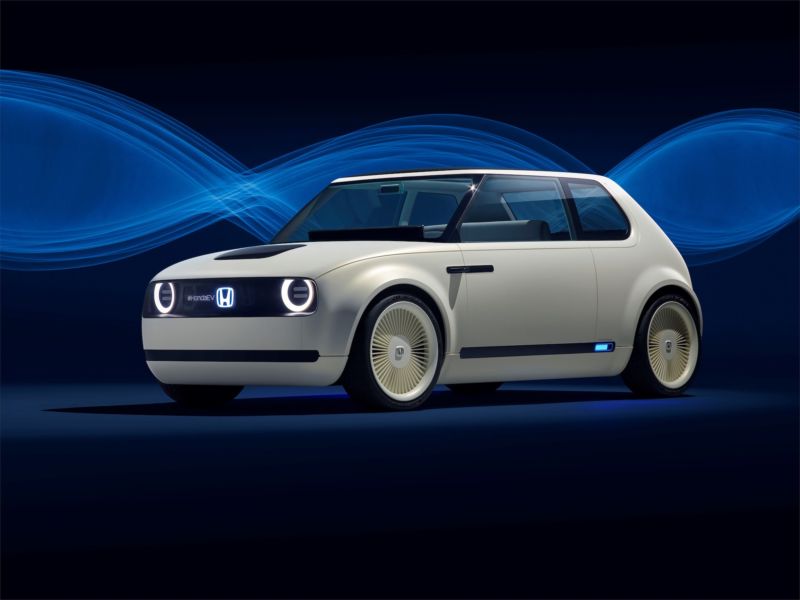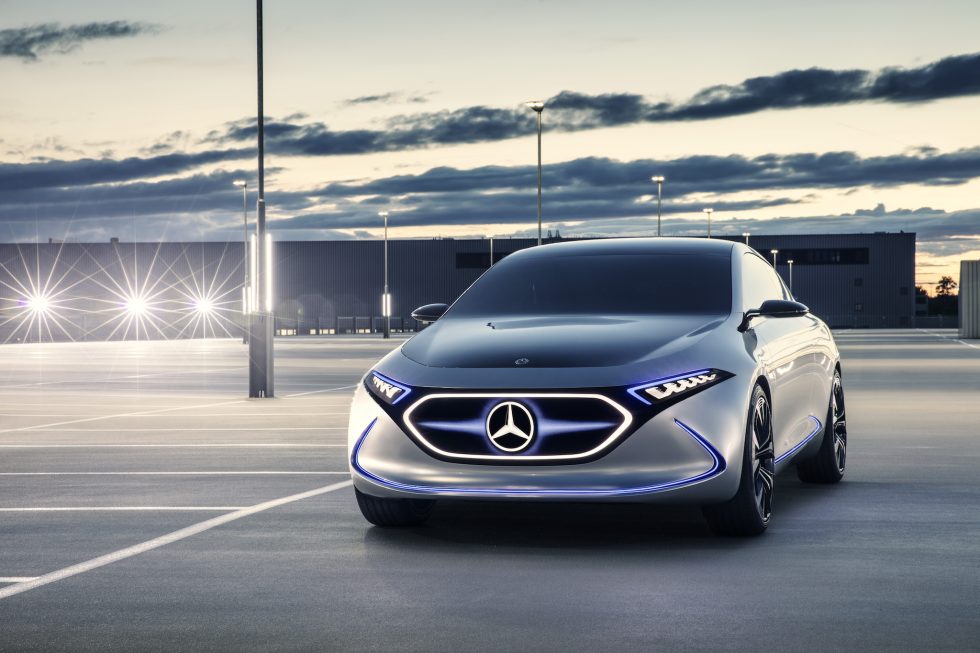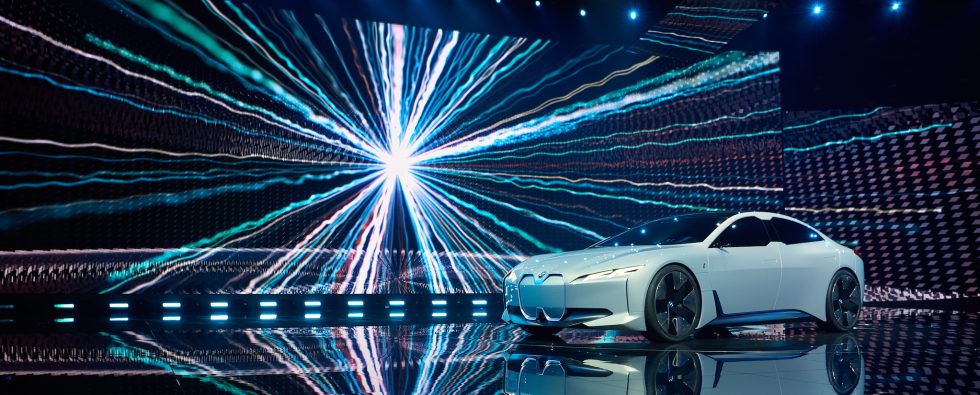
The theme at this year's Frankfurt Auto Show was definitely electric. Just about everyone had a new electric vehicle concept on show. And there were electrification roadmaps galore. The only thing that was missing was the here and now, and the holdup has me irked. You see, disclaimers were everywhere. The EVs on display are mostly stalking horses for production cars, but none of them is ready for sale today. Those plans to electrify entire model ranges? 2030 appears to be the date by which you'll be able to get an electric version of any car you want—subject to fine print.
Mainstream OEMs are properly beginning to grapple with the idea of a life without the internal combustion engine, and I quite like some of the directions they're going. Honda gave us possibly my favorite-looking car of the show, the Urban EV. It's a small city car with proportions that call back to the Z600 and other Honda hatchbacks of the 1970s but looks that suggest Syd Mead by way of Pixar. Wonderful design details abound, although I doubt either the stubby side-view cameras or external charge indicator will make it to production. But a production version is coming—provided you can wait another two years and live in Europe.
Mercedes-Benz, too, had a small electric concept. The EQA is the three-pointed star's idea of a sporty compact, a little smaller than the current GLA crossover. Bigger than the Urban EV, it was also designed to show its emotions. Switch the car into Sport Plus mode and the black panel at the front changes the virtual grille, replacing the blue design with a red digital facsimile of the "Panamericana" radiator used on its sports cars of new and old. Whether one wants the entire world to know what driving mode they're using must be immaterial—at least we can be glad that the blue underlighting only illuminates when stationary.

Unlike Honda, Mercedes was more accommodating with details on the EQA: 60kWH and 200kW, courtesy of front and rear electric motors. A production version is likely but not before the first proper battery EV Benz. That will be the larger EQ, and again it won't be ready for another two years. Everywhere you look there's a wait. Volkswagen Group's MEB platform promises everything from electric Bentleys to that electric microbus that it has been teasing us with in one form or another since the turn of the century. But the earliest of these cars is still more than a year out. That electric Mini? 2019. At least that one has a date, for BMW hasn't said when the i Vision Dynamics might turn into an i6.
Then there are the grand-sounding plans. VW's scandal-torched product plans were full of diesel engines, and it finally lit a fire under the industry. BMW says it will have 12 new battery EVs by 2025. Mercedes promises 10 by 2022. In a case of epic one-upmanship over its domestic rivals, VW Group says to get ready for 30 battery EVs by 2030. Those numbers sound like a start, but the roadmaps always contain fine print. Even the recent pledges from Volvo and Jaguar Land Rover lump 48v mild hybrids in with plug-in hybrid and battery EVs and lead to artificially optimistic headlines that will eventually breed cynicism.

Perhaps I'm being too harsh on the auto industry. As we noted a few years ago, the product cycle of consumer tech has changed our expectations. Every year—two at the most—we want our things to be faster, lighter, and cheaper. But designing a new car is difficult; there are lots of rules and regulations that have to be followed, and the investment in each new model is measured in billions, not millions. There's still plenty of investment required, for Porsche says it can't build an electric 911 without the solid-state batteries that VW needs to perfect.
At the same time, it often feels like everyone cares way more about automation than just making good electric cars. And while road deaths are surely a problem, so too is ever more extreme weather caused by climate change. For the last five years, Tesla has proved it's possible to build a credible EV that people will aspire to. A key stumbling block to that may have been range, and to date only Chevrolet has been able to pack as much lithium-ion into a car as Elon Musk's mob. And 200+ miles of range is a psychological barrier more than a practical one; many of us drive many fewer miles a week than that. Nissan has sold plenty of Leafs, and sales of the second generation car, which does 150 miles on a charge, will show if that's the case.
So come on, car makers. Frankfurt was a good start, but most of you are already behind the curve. There's a lot of catching up to do.
reader comments
85